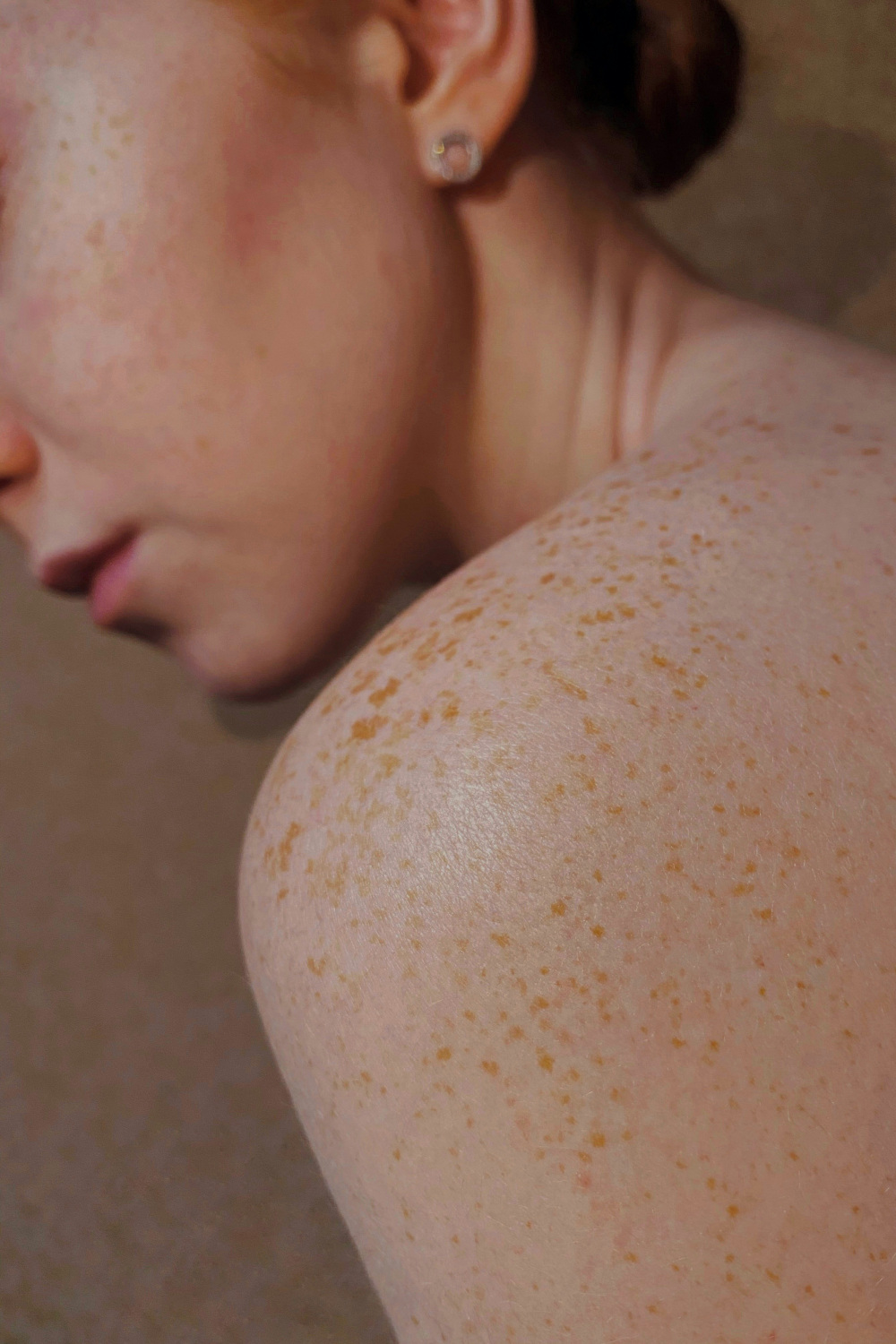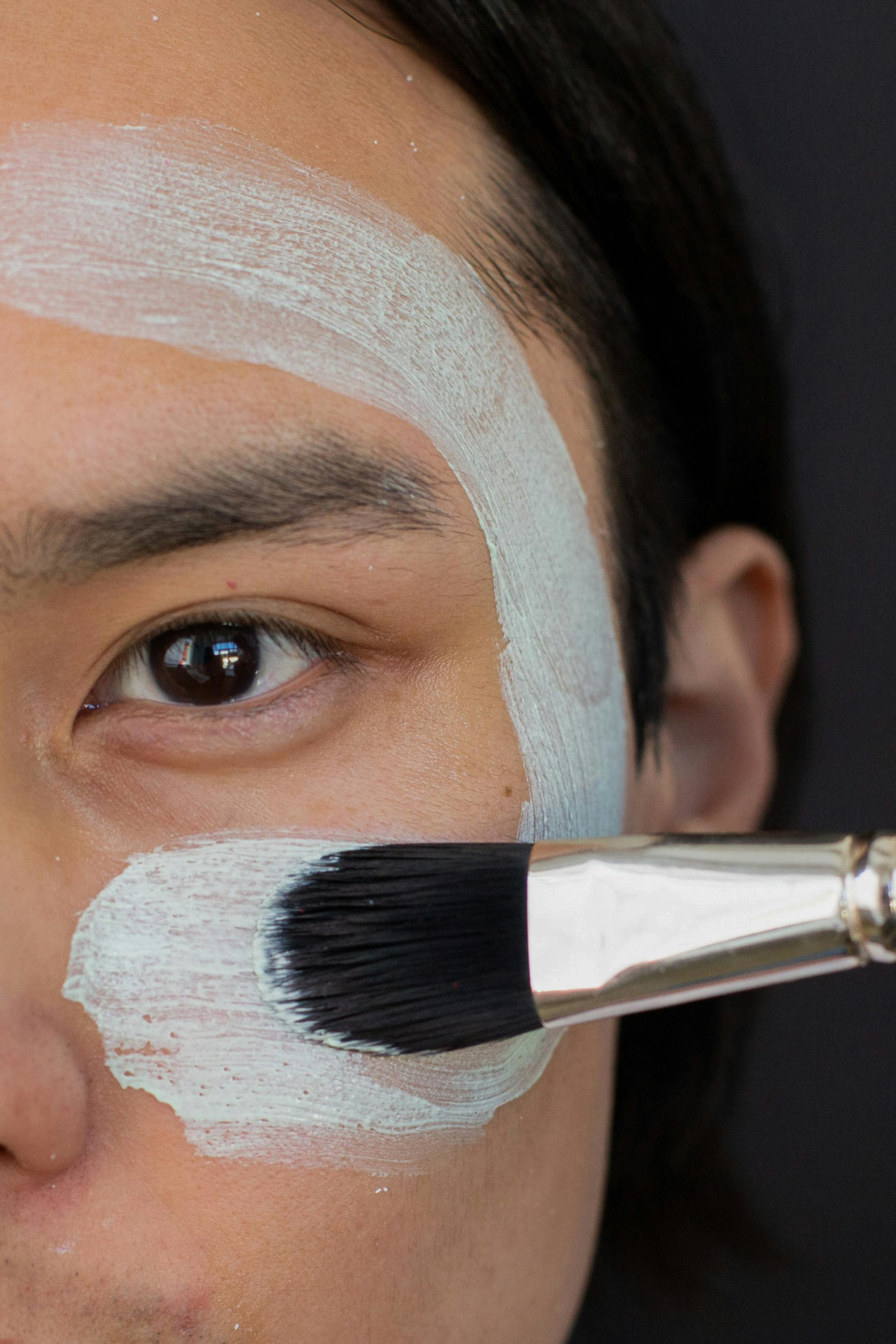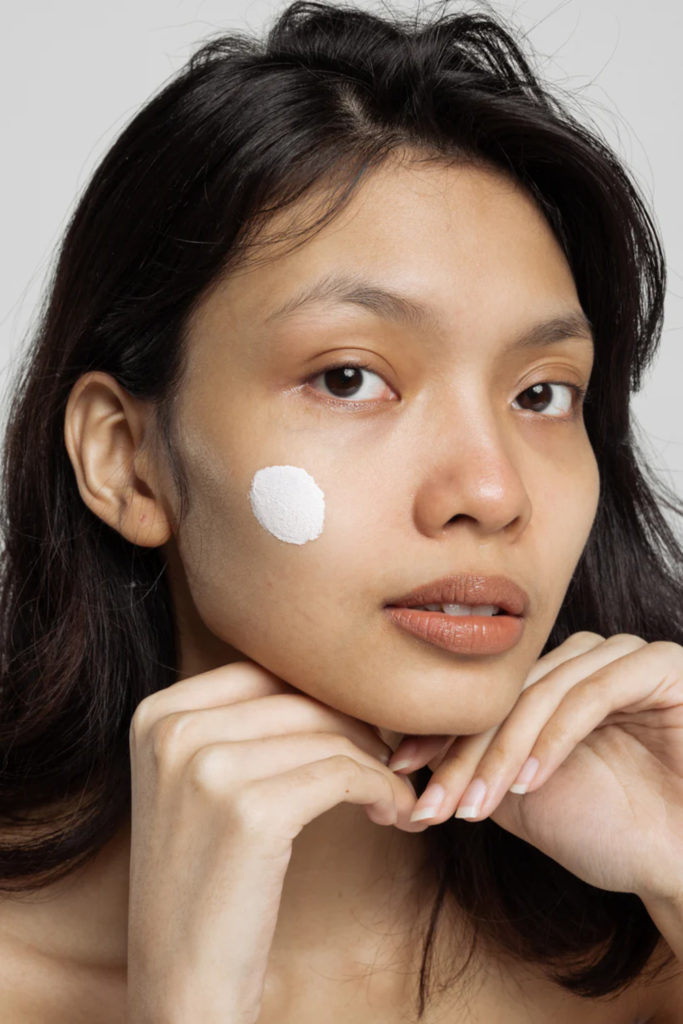
Revealed: The 10 Biggest Skincare Trends For 2025
By
6 months ago
What's big in skincare?
Already making 2025 plans? If your new year’s resolutions consist of a refined skincare regime packed with the buzziest ingredients and technologies, you’ve come to the right place. Get ahead of the curve with these 2025 skincare trends, as forecasted by experts in the field.
The Skincare Trends Taking Over 2025
Innovation will be the key skincare trend leading 2025, as new high-tech ingredients and AI-manufactured routines take centre stage. Here’s what to expect:
Trends At A Glance
- AI Skincare
- Gender Neutral Products
- Exosomes
- Vegan Collagen
- Microbiome-Infused Body Care
- Ectoin
- Preventative Skincare
- Oxygenation
- Rise Of The Dupes
- Undetectable Beauty
1. AI Skincare
With AI rapidly rising to the front of multi-industry innovation, it makes sense to see it cropping up in the health and beauty space. And experts are predicting that it will be a huge skincare trend come 2025. ‘I expect AI to make some sort of appearance in the beauty product industry, whether in the form of advice or personalisation,’ says Tania Rashid, Skincare expert & Co-Founder of Aesthetics Lab. ‘In the latter case, mainly around recommending skincare based on your goals and concerns, matching a foundation shade to your skin, or suggesting a make up tutorial with the right colour palette for your complexion.’
Amy Peterson, medical aesthetician and founder of Skincare by Amy Peterson Clinic, also sees AI being big in clinics. ‘Generative AI offers tools to help enhance in-clinic consultations and skin diagnostics,’ she says. ‘This allows the practitioner to take skin care analysis and treatment recommendations to the next level through accurate detection of wrinkles, spots, skin texture but also issues that reside beneath the surface of the skin that are not visible to the naked eye which may cause long term issues, such as deep pigmentation and inflammation. These AI tools can simulate skin healing results post treatment, giving users emulations of the progress they can expect to see.’
2. Gender Neutral Products
Genderless skincare will also grow in popularity, as the boundaries between men and women’s products continue to blur. ‘Men’s products as well as inclusive beauty standards are gaining momentum,’ confirms Tania. ‘More products will cater to the unique needs of men while inclusivity will mean more than just catering to different skin tones and types but also developing products that are gender neutral. In 2025 and beyond, the consumer will also expect beauty and wellness to walk hand in hand, with skincare products being able to contribute to overall well-being and not just “beautify”.’

(c) Gabby K, Pexels
3. Exosomes
You can also expect to see more developments with exosomes. ‘We are already witnessing the spike in exosomes in aesthetics,’ notes Amy. ‘I believe they will continue to be a major aesthetic trend in 2025 and beyond. Their ability to enhance cellular communication and rejuvenation has been a huge breakthrough in skin health and anti-aging treatments. Exosomes’ role in promoting tissue repair and regeneration, paired with their natural origin, aligns with the increasing demand for innovative and biological skincare solutions.’
‘Exosomes are the closest we can get to the regeneration of human cells and tissues,’ adds Dr Ivy, an aesthetic doctor and the founder of Academy of Face Design. ‘The technology is based on DNA activation of collagen production. We are getting access to a new range of cosmetics which is a hybrid of skincare and in-clinic treatments. The key is to have products that have a certain percentage of exosomes, but also active ingredients like growth factors and hyaluronic acid to enhance and boost skin even more in conjunction.’
So, how will they be used in skincare? ‘They can be applied topically to deliver the best results,’ Amy tells us. ‘We apply exosomes directly into the skin post microneedling treatment for the most beautiful, rejuvenating results. We also recommend exosomes as post-care following the variety of laser treatments we do at our office. Exosomes in skincare not only offers serums for the skin but also a topical exosome hair serum that delivers powerful results for hair rejuvenation.’
4. Vegan Collagen
Collagen also continues to have sway over the beauty scene – but in 2025, expect more developments from vegan alternatives. And, as the demand for ethical wellness continues to grow, vegan collagen supplements are set to become the next big thing. ‘There is much debate around the efficacy of plant-based collagen, but there are plenty of merits to taking plant-based and vegan supplements regardless of whether you follow a vegan diet,’ says Dr. Ioannis Liakas, Fellow of the Royal College of Physicians and Medical Advisor for Arella. ‘Arella Collagen uses science-backed VeCollal®, a sustainable plant-based protein that mimics human type 1 collagen to naturally boost the body’s collagen production.
‘Vegan collagen also lacks toxins and other heavy metals that marine or bovine supplements can be contaminated with,’ he continues. Dr Liakas also notes that vegan alternatives can often taste better. ‘Arella Collagen comes in liquid form, enhancing its biocompatibility with human tissue, and it’s often more palatable than animal-derived collagens, which can have a distinct taste and smell.’
5. Microbiome-Infused Body Care
Our focus won’t just be on the face, either. ‘The microbiome is becoming a focal point in skincare, and for good reason,; says Kelly Swann, Aesthetic Nurse and Skincare Expert at Swann Beauty. ‘A healthy skin microbiome is essential for maintaining balance and protecting against environmental stressors. In 2025, we’ll see a rise in body care products infused with probiotics and prebiotics designed to nurture the skin’s natural microbiome.’
And how can we get on board with the trend? ‘Look for body lotions and serums that specifically mention microbiome support or contain live cultures,’ suggests Kelly. ‘Incorporating these products can help balance the skin’s flora and improve overall skin health. Also, consider dietary changes to support your skin microbiome from within – foods rich in fibre and probiotics can make a big difference.’
6. Ectoin
Another buzzword ingredient in skincare, ectoin is also set to be a major 2025 trend. ‘Ectoin, an amino acid derivative, is emerging as a superstar ingredient,’ confirms Kelly. ‘Known for its ability to strengthen the skin barrier and reduce water loss, ectoin helps maintain skin hydration and resilience. With climate change and environmental stressors impacting our skin, ectoin’s protective qualities are becoming increasingly sought after.
‘I would recommend looking for moisturisers or serums containing ectoin, especially if you live in a dry or polluted environment,’ she continues. ‘Using products with this ingredient can help fortify your skin against external aggressors and maintain hydration throughout the day.’
You can read more about the ectoin movement with our guide here.
7. Preventative Skincare
‘There is a significant shift towards preventative skincare over reactive repair solutions,’ highlights Kelly. ‘In 2025, consumers will focus on preventing skin issues before they arise rather than trying to fix them afterward. This means investing in high-quality skincare products that promote long-term health, like sunscreens, antioxidants, and hydrating treatments. Try to establish a robust skincare routine that prioritises prevention. Incorporate broad-spectrum SPF into your daily regimen and use antioxidant-rich serums. Regular professional treatments can also maintain skin health – remember, prevention is always better than finding a cure.’

(c) Carolina Heza, Unsplash
8. Oxygenation
Other experts believe that oxygenation will become a priority in skincare going forward. ‘At a cellular level, skin requires oxygenation and hydration to maintain its vitality, elasticity and glow,’ explains Sharon Hilditch MBE FCGI, Founder of Crystal Clear and developer of SKINSTORM. ‘Over time, factors such as ageing, environmental stressors, and lifestyle choices can deplete the skin’s natural oxygen content, leading to diminished health and vibrancy. The introduction of topical dissolved oxygen via the SKINSTORM treatment, for instance, replenishes this essential element directly to the skin’s surface, thereby invigorating it and elevating its overall health. This boost not only ensures that the skin is in better condition ahead of cosmetic enhancement but also sets the foundations for healing and rejuvenation.’
9. Rise Of The Dupes
The demand for affordable alternatives is also creeping into the health and beauty space, with dupe culture growing rapidly. ‘The quest for value means consumers are more open-minded about areas of the industry that they might previously have dismissed,’ highlights the Avon Future of Beauty Skincare Report 2024. ‘“Dupes” – or products that seem to replicate big names and more expensive beauty products at a much more affordable price – were once something of a guilty secret. But the combination of the cost-of-living crisis and social media sending the best dupes viral has changed all that.
‘Interestingly, consumer intelligence company NIQ has found that dupes “transcend the notion of mere imitations” and in fact are “powerful catalysts driving category growth”,’ the report continues. ‘Their research discovered that dupes can encourage shoppers to expand their beauty routines, trying products such as setting sprays and primers that they might not otherwise have tried. In addition it shows that contrary to popular belief, sales of dupes don’t appear to have a negative impact on the prestige products they’re emulating – with the five most duped brands showing an average sales growth of 54 percent.’
10. Undetectable Beauty
And finally, expect to see subtle – but big – differences in the way we approach skincare enhancements. ‘This year will be all about “undetectable beauty”, where skincare routines enhance your natural complexion without being visibly noticeable,’ highlights Dr Nyla Raja, founder and medical director of Dr Nyla Medispa. ‘The focus is on subtle refinement, like boosting skin health from within, instead of masking imperfections. Key ingredients like peptides and bioactives will be at the forefront, working to stimulate collagen production and smooth fine lines without the need for invasive treatments.’
The trend has a similar approach to external skincare. ‘We’re also seeing a surge in microbiome-friendly skincare, particularly postbiotics, which help to balance the skin’s natural flora for healthier, more resilient skin,’ confirms Dr Nyla. ‘The continued use of popular ingredients such as niacinamide for calming and strengthening the skin barrier, along with ceramides and peptides for deep hydration and repair will remain at the forefront of skincare trends. It’s all about achieving a youthful glow that looks like you’ve just had a great night’s sleep, not a procedure.’
Featured image: Valeria Smirnova, Unsplash










